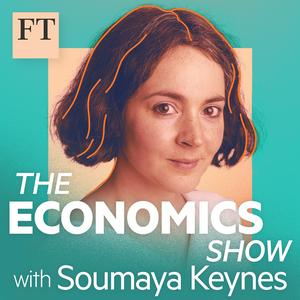When Richard Thaler and Cass Sunstein released their book ‘Nudge’ in 2008, it caught the public imagination. ‘Nudge theory’ – the idea that people could be encouraged to make better choices through small, subtle interventions – was innovative, and exciting. A decade and a half later, a whole lot of nudging seems to have come to a whole lot of nothing. Why wasn’t ‘nudge theory’ more help in tackling climate change, or helping people enroll in pensions? And, even if it hasn’t saved the world, does behavioural science still have a role in policymaking? Former member of the UK’s Behavioural Insights Team and professor of behavioural science, Nick Chater, reflects on the legacy of nudges.
Related Links
Can we ‘nudge’ our way to higher growth?
The uses — and the limits — of ‘nudge’ economics
What nudge theory got wrong
Subscribe to Soumaya's show on Apple, Spotify, Pocket Casts or wherever you listen.
Read a transcript of this episode on FT.com
Hosted on Acast. See acast.com/privacy for more information.


